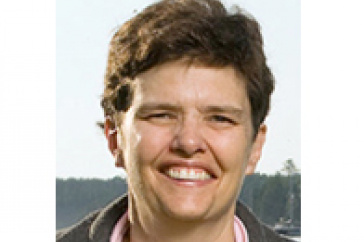The University of New Hampshire is a flagship research university that inspires innovation and transforms lives in our state, nation and world. More than 16,000 students from all 50 states and 71 countries engage with an award-winning faculty in top ranked programs in business, engineering, law, health and human services, liberal arts and the sciences across more than 200 programs of study. UNH’s research portfolio includes partnerships with NASA, NOAA, NSF and NIH, receiving more than $100 million in competitive external funding every year to further explore and define the frontiers of land, sea and space.
MEDIA ADVISORY: UNH Expert Available to Discuss Oil Spill in Chinese Waters

DURHAM, N.H. – Oil spill expert Nancy Kinner, professor of civil and environmental engineering at the University of New Hampshire, is available to comment on an Iranian tanker sinking in the East China Sea that could be the largest tanker spill in more than 25 years. As director of UNH's Coastal Response Research Center, Kinner has led numerous workshops and briefed U.S. Congress on issues regarding oil spills. She can be reached at (603) 479-3777 or nancy.kinner@unh.edu.
Kinner is recognized as a leading independent expert on the fate and effects of spilled oil. During the Deepwater Horizon oil spill, she was sought after for her expertise by hundreds of national media outlets and testified before federal lawmakers three times. In addition, she has taken a leadership role in creating and disseminating scientific knowledge in support of clean-up efforts, convening several high-level meetings among spill responders, scientists, and other stakeholders including in the Gulf of Mexico and Alaska.
The Coastal Response Research Center, founded at UNH in 2004, is a partnership between the National Oceanic and Atmospheric Administration and UNH that addresses a range of hydrocarbon-based spill topics with national and international stakeholders in government, industry, and academia. It draws on UNH's expertise in marine science, ocean and environmental engineering, and environmental science as well as New Hampshire's independent position as a state with no oil production or refining.
Latest News
-
June 25, 2025
-
June 16, 2025
-
June 6, 2025
-
May 15, 2025
-
May 14, 2025
















































